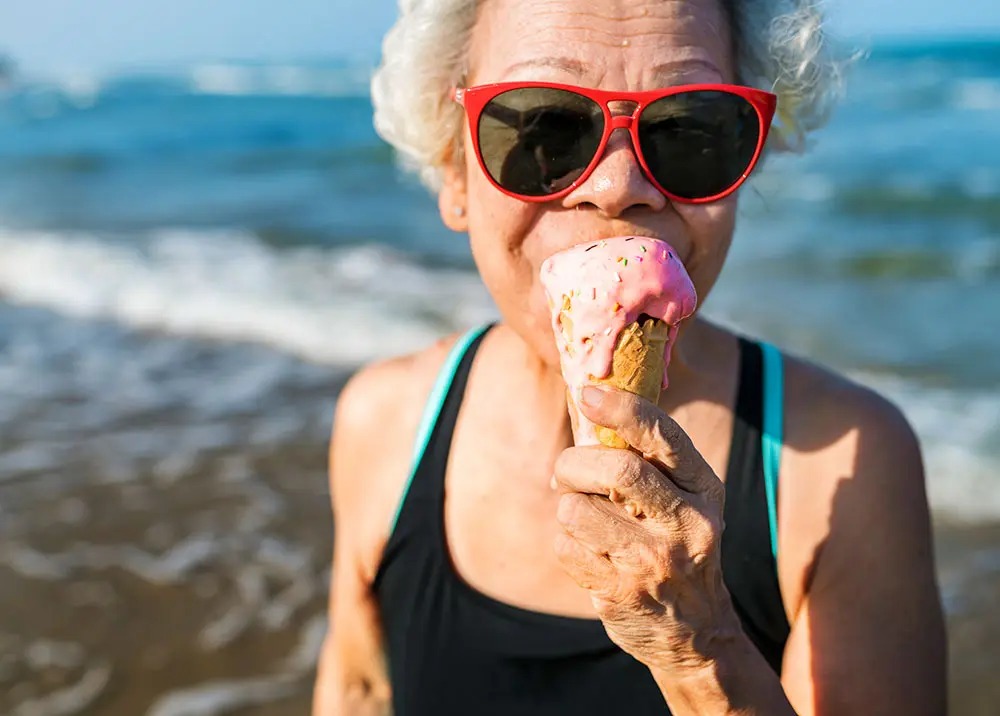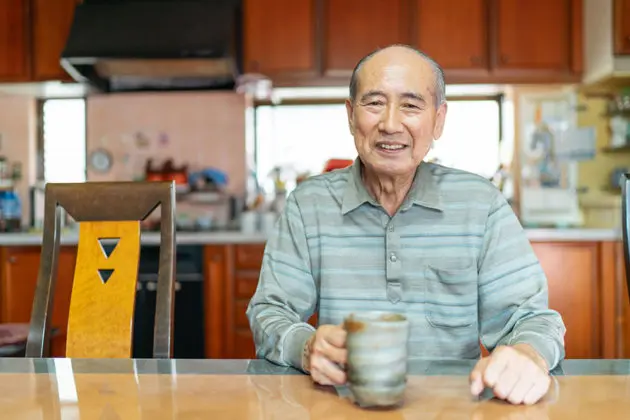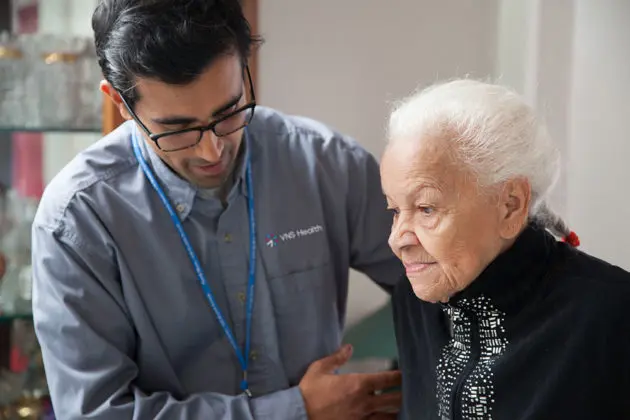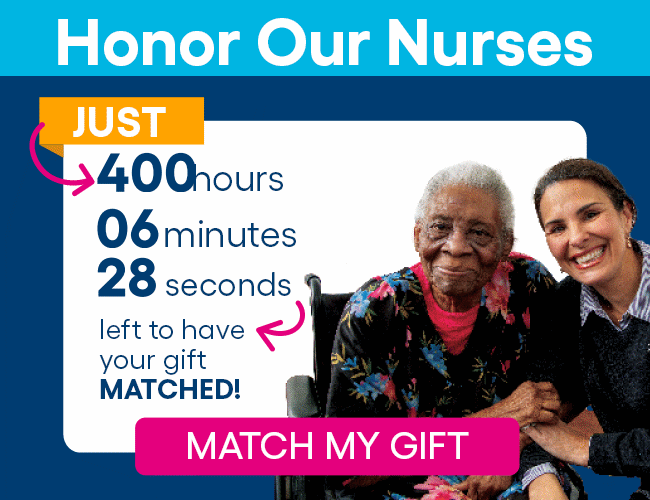
Heat waves are never easy. But they can be brutal in urban areas like New York City. Pavement and metal trap heat, so cities may be as much as 10°F. hotter than suburbs. Hot weather can increase the risk of heat exhaustion and dehydration, especially for older adults, who may be less aware of changes in their body temperature. As we age, our body becomes less able to cool itself. Conditions that can cause heat cramps in a teenager may lead to heat exhaustion in a 40 year old and heat stroke in a person over 60.
However, keeping older adults safe during hot weather is possible with these tips.
Turn on the Air Conditioning
Turning on air conditioning is the best way to avoid heat-related illness. (Set the unit to 78°F.) But not all city apartments are air-conditioned. And air conditioners can break down or perform poorly when it’s extremely hot. If your loved one doesn’t have air conditioning, open the windows and use fans. Pull the shades as low as possible to keep out the sun. At night, run fans to draw in cooler air.
Change or clean air-conditioner filters often. These filters can trap pollutants, mold spores, pollen, and dust. When the unit is turned on, these potential allergens are blown through the air and can cause breathing problems.
Making sure your loved one’s home is safe can have many responsibilities and challenges. A home health aide can help you create a safe environment for your loved one.
Pay Attention to the Air Quality Index
Recent research indicates that it is not just high temperatures that make heat waves dangerous. High temperatures often go hand in hand with high levels of air pollution. Smog, ozone, and even smoke from forest fires can make breathing difficult and can increase the risk of heart attack and stroke. Weather apps and forecasts often report the air quality index, so you can limit outdoor activities if necessary.
Stay Hydrated
One of the most important ways to stay safe during hot weather is to hydrate. Have plenty of liquids on hand. However, if your loved one has heart, kidney, or liver disease, check with their doctor about how much liquid is safe. In addition to drinking water, eat foods that contain water, such as fruits, vegetables, gelatin (Jell-O), and ice pops. Avoid alcohol and caffeinated drinks, which may not be as hydrating as other liquids.
Remember to Eat
You may feel less hungry during the summer, but it is important to continue to eat well during hot weather. Be sure your meals contain protein (lean meats like chicken and fish) and complex carbohydrates (vegetables and whole grains). Eat small, frequent meals to keep up your strength.
Take Cooling Baths or Showers
Take frequent lukewarm (not cold) baths or showers to keep your body from getting too hot. Be sure that the bathtub has a slip-resistant mat or safety bars to prevent falls.
Consider a Home Health Aide
Hiring a home health aide to care for your loved one can provide peace of mind. And regular home visits offer companionship when hot weather keeps people inside for long periods. At the very least, have a neighbor or friend check in on a loved one. Heat-related illness can cause a person to become confused or lose consciousness. Check on loved ones and neighbors who are over age 65 at least twice a day. If you are over 65, ask a friend or relative to call you twice a day.
Stay Inside at Midday
The hottest time of the day is between 10 am and 2 pm. Avoid cooking or spending time outdoors during this time. If you must leave the house, wear loose, light-colored clothes and a wide-brimmed hat. Don’t forget sunscreen, especially if you take medicines that make you sensitive to sunlight. Always keep a fresh bottle of water in the refrigerator, and take it with you when you go out.
Practice Car Safety
Don’t let anyone stay in a parked car without air conditioning. Cars can quickly heat up to dangerous temperatures, and anyone left in a car is at risk for serious heat-related illness or even death.
Seek Out Cool Places
Visit your local library, shopping center, movie theater, community center, or other place with air conditioning. When the heat index is dangerously high, New York City opens cooling centers. Call 311 (TTY: 1-212-504-4115) or use this map to find a cooling center near you. Tip: Libraries, senior centers, and community centers often serve as cooling centers during heat waves.
Watch for These Signs of Heat-Related Illness
- Leg or stomach cramps are often the first signs of heat-related illness. Treat mild cramps with rest and fluids. If cramps become severe or are accompanied by nausea, seek medical attention.
- Fatigue, weakness, nausea, headache, dizziness, confusion, weak or rapid pulse, and shallow breathing are signs of heat exhaustion and heat stroke. With heat exhaustion, the skin is clammy or sweaty. With heat stroke, it is flushed, hot, and dry.
- Treat heat exhaustion by elevating the feet, placing cool wet cloths on the skin, and giving the person water or an electrolyte solution. If these don’t help, seek medical attention. Heat exhaustion can develop into heat stroke, which is a medical emergency. Call 911 at once!



